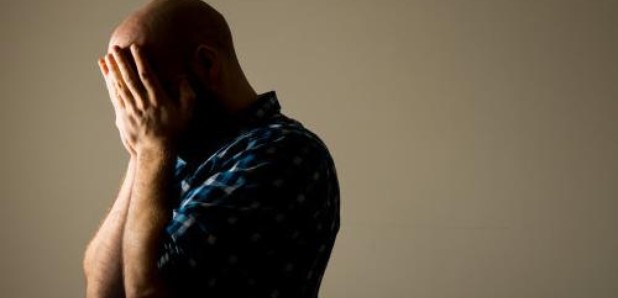More than a third of men don't ask for help when struggling to cope
19 March 2019, 07:17

More than a third of men don't ask for help when they are struggling to cope, according to new research.
A study for Samaritans found that 36% of men aged 20-59 in Scotland do not seek support because they prefer to solve their problems themselves, with many saying they don't want to feel like a burden and don't feel their problems will be understood.
The charity is now launching a campaign called Real People, Real Stories.
It sees men who have overcome tough times sharing their stories to encourage others to seek help by contacting Samaritans.
Kilmarnock and former Scotland striker Kris Boyd, who lost his brother to suicide, is backing the campaign.
He said: "There is still a lot of stigma that can make it hard for men to open up about mental health.
"My experience losing my brother to suicide has made me more determined to do what I can to encourage others to reach out when they're struggling.
"And we can all be a part of making that change, by taking the time to talk when we're struggling or when we know someone who is, by being that listening ear or a shoulder to lean on.
"I hope that by sharing my story I can let other men know, you don't have to struggle alone."
Asked about why they have struggled in the past, men in Scotland cited a number of reasons including debt or financial worries (28%), relationship breakdown or family problems (28%).
Also featuring was loneliness or isolation (23%) and job loss or job-related problems (22%).
Samaritans said men in the UK are three times as likely to take their own lives than women.
Middle aged men are at greatest risk of suicide with those aged 45-59 years at highest risk, followed by men aged 30-44.
Tony Robertson, 38, said he found it hard to cope when he lost his job, his home and partner, and tried to take his own life.
He said: "I was in my hospital bed the morning after and I saw my mum sat there upset, and something clicked. I started talking to my mum about how I was feeling.
"I think having that human connection really does bring that home.
"I hope by sharing my story as part of the campaign, it will encourage other men to speak up and seek help before getting to the stage that I got to. Talking really can save lives."
The survey found that 80% of men in Scotland said it's alright to admit you're not feeling okay. But a quarter of men in Scotland said they felt their problems weren't important enough to warrant calling a helpline.
James Jopling, executive director of Samaritans Scotland, said: "It's clear that too many men in Scotland continue to struggle alone.
"By sharing positive and hopeful stories, we want to send the message to men in Scotland, that whatever they're going through, they don't need to face it on their own."
The campaign is supported by National Rail, and will have a presence in some of Scotland's major train stations.
The survey of 2,040 were men aged 20-59 from England, Scotland and Wales, including 510 men in Scotland, was conducted between February 28 and March 6.
Samaritans can be contacted 24/7 free on 116 123 or at Samaritans.org.






















